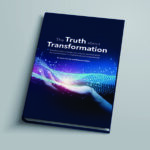

Mid-Summer Checkpoints
Issue 120, August 3, 2023
It’s been a hot summer for most of us. The political conversation continues to escalate. The war drags on. Inequity and inequality divide us. Next gens still raise their voices with demands and pleas for the planet.
But not all news is divisive and frustrating. One fact in the ongoing swirl is that only change endures. It would appear that our marketplaces and societies are settling into new models and realities as we assimilate all the changes we experienced over the past few years. Yes, we know the shifts caused by the pandemic have been over-reported, but it’s worth taking a pause to review some new changes that seem to be finding their way into better mindsets and improved situations. Here are a few top notes which are interrelated and when viewed holistically form a connective tissue.
- Work/life balance is a thing, not an abstract workplace culture concept. People are working less, or at least less intensely than they did in 2019 and even before. Once work/life balance was revealed, no one wanted to let it go. Silent resistance to traditional workplace models remains and according to many research surveys, many employees are increasingly frustrated with their inflexible management. When changes in work policy come without rational reasons or demands placed on employees seem out of balance with what can be realistically accomplished, there is going to be pushback.
- Hybrid work can produce positive results, although not for every industry. Many companies and organizations continue — either willingly or via pressure from their employees — to embrace remote and hybrid work. It’s working and productivity in the US remains high. Organizations that have bucked the trend with a traditional 40-hour, on-site work model seem very much stuck in the past. It has been validated that innovation, creativity, teamwork, and problem-solving can thrive outside of the water cooler culture.
- Exodus from urban areas has balanced out. A reverse-exodus return to the cities has been enhanced by new corporate hubs even though many of our urban downtowns remain in dark times as they plot a course to reinvent themselves into vibrant residential areas. The health of the suburban strip mall, on the other hand, is revitalized to serve so many people who work in or near their homes. This commercial renaissance is exceeding everyone’s expectations as they become the new hubs for in-person meet-ups, medical appointments and fulfilling daily errands.
- Vacations this summer are soaring. The recognition of the importance of unplugging from day-to-day work and taking vacation time is by all appearances here to stay. This challenges the Calvinist work ethic that formed the American workplace. Vacations represent the evolution of work/life balance and the pursuit of wellbeing.
- Looks like a soft landing for the economy. All indicators are leading to a high level of confidence that we have dodged a recession as growth continues.
- Unemployment is low. Organizations are holding onto their employees and seeking other ways to cut costs. A bright spot is a new wave of Federal infrastructure spending and the exploration of new energy sources that are catalyzing a list of industries to innovate, invest and re-invest.
- Consumers are propelling the economy forward, Wage growth is nearing or overtaking inflation in most cases.
- Ecommerce did not destroy physical retail. Enough said!
- Real estate developers are reinventing their industry. The demand for commercial real estate has significantly declined while residential housing remains elusive for an ever-growing population. And what about all those empty storefronts, malls, and urban office spaces? Time for rethinking space and place.
- Big tech finally gets humble. Or so it would seem. The jury’s still out on this one.
So, then what?
The Bigger Picture
Let’s dig deeper. There are several threads here that are key to embracing and understanding change. First and foremost, you can’t predict the future based on the past. Second, wanting nostalgia and sentimentality are not viable motivations for adapting and moving forward. And there is never going to be a new normal; we live in flow and flux, infused with constant change, and always will.
At 2040, we work with clients to help them recognize that history informs but doesn’t dictate or guarantee the present or the future. This is important to know when mastering how to run an organization in a disruptive, ever-changing digital, interconnected marketplace.
Deeper Dive into Happiness
As good news messengers, we want to focus on an increase in optimism, newfound fulfillment and happiness, and a pervasive shift taking place among the workforce and managers to create a more balanced life. We’ve looked to some high-profile CEOs for insights to catalyze consideration for all of us.
Richard Branson, the mercurial and unpredictable founder of Virgin Group believes that fulfillment results from four basic beliefs (Inc):
- Overcoming preconditions: No more excuses, letting what seems important eclipse other things, and compromising the present for the future. In Branson’s words, “The staff at Virgin have a name for me: Doctor Yes. They call me this because I won’t say no. I find more reasons to do things than not to do them. My motto is ‘Screw it, let’s do it!’ I will never say, ‘I can’t do this because I don’t know how.’ I will give it a go. I won’t let silly rules stop me. If you don’t have the right experience to reach your goal, look for another way in. Keep your eyes open. Look and learn.”
- Money is not the metric for success: Pressure from stakeholders, short-term expectations from investors, and an insatiable desire to beat forecasts and year-over-year numbers result in more stress than feelings of happiness. Business success often carries a heavy personal price. Your definitions for professional success and personal success need to align holistically. Branson explains, “Happiness isn’t just how I measure my success; it’s the key to it. Most people would assume my business success, and the wealth that comes with it, have brought me happiness. But I know I am successful, wealthy and connected because I am happy.”
- Speaking counter trend, intuition should not be underrated. As Steve Jobs said, “You can only connect the dots looking backward.” Branson adds, “Everything I’ve done in my life has been instinctive. Don’t ask everyone whether it’s a good idea. The best way to find out whether it’s a good idea is to try it. If you fall flat on your face, pick yourself up, try again, and again, and again, until you succeed.”
- Time management: Branson has mastered the formula for work/life balance. “I devote three or four hours a day to finding fun things to do to keep really fit. Tennis. Biking, Kite surfing. The gym. If you find the time for your body, and you’re feeling really great, your day just expands by another three or four hours and you’re so much more productive.”
And a Deeper Dive into Fulfillment
Icon and iconoclast Steve Jobs identified four keys to professional fulfillment as reported by Inc.
- Intelligence:Jobs explains seeing the macro view through holistic connections is what makes individuals intelligent. “A lot of it is memory. But a lot of it is the ability to zoom out like you’re in a city and you could look down at the whole thing from the 80th floor. And while other people are trying to figure out how to get from point A to point B, reading stupid little maps, you can just see it in front of you. And you can make connections that seem obvious. Also, the key thing that makes you intelligent is a variety of experiences to draw upon to try to solve a problem or attack a particular dilemma in a unique way. What you have to do is make connections which are innovative and to connect experiences together.”
- Leadership: “Act as if success or failure is totally within your control: If you succeed, you caused it. If you fail, you caused it. Never make excuses. Never list reasons. And never point fingers. Unless, of course, you point them at yourself — and resolve that next time, you’ll do whatever it takes to make sure things turn out the way you wish.”
- Perseverance: “I’m convinced that about half of what separates successful entrepreneurs from the unsuccessful ones is pure perseverance. It is so hard. You pour so much of your life into this thing. There are such rough moments… that most people give up. I don’t blame them. It’s really tough.”
- Money: Jobs believed that wealth isn’t a proxy for intelligence or for success. “When I was 25, my net worth was $100 million or so. I decided then that I wasn’t going to let it ruin my life. There’s no way you could ever spend it all, and I don’t view wealth as something that validates my intelligence. My favorite things in life don’t cost any money.”
And Diving into Hybrid Work
Many employees have pushed back returning to work full-time as an intrusion into their lives and wellbeing when they believe they can accomplish just as much by working remotely. In a report from Semafor, Delta Air Lines’ CEO, Ed Bastian, says CEOs complain to him about how they’re having a hard time getting their employees back in. Bastion explains, “I guess the logical question is whether that’s even the right move. New work patterns mean that people are traveling who in the past couldn’t because they were in an office Monday through Friday.” Consider how hard it is to get people to come back to the office if they are working in an exciting, inspiring place. A typical office environment stifles creativity and innovation. But what if the office is a place people want to come to?
There’s a corollary to this in terms of the Latin aphorism, “Carpe Diem.” People are more confident and “seizing the day” fully awakened from their pandemic slumber. According to Axios, Out-of-office messages have been on the rise, and more working adults took vacation days in the first six months of this year than in any other January-to-June stretch in over a decade. What’s different? Americans typically leave vacation days on the table each year and 46% say they take less time off than is offered (Pew).
Moving On Through the Season
We help our clients adjust to the inconvenient truth that change needs to be embraced not resisted. Sure, change is hard, especially if it is imposed on you. But we always say Carpe Diem and turn the tables on change by owning it. We can’t control the circumstances of our lives, but we can control how we respond to them and manage them. You can be a victim or an agent of change. At 2040, we help you make the right choice.
Get “The Truth about Transformation”
 The 2040 construct to change and transformation. What’s the biggest reason organizations fail? They don’t honor, respect, and acknowledge the human factor. We have compiled a playbook for organizations of all sizes to consider all the elements that comprise change and we have included some provocative case studies that illustrate how transformation can quickly derail.
The 2040 construct to change and transformation. What’s the biggest reason organizations fail? They don’t honor, respect, and acknowledge the human factor. We have compiled a playbook for organizations of all sizes to consider all the elements that comprise change and we have included some provocative case studies that illustrate how transformation can quickly derail.

